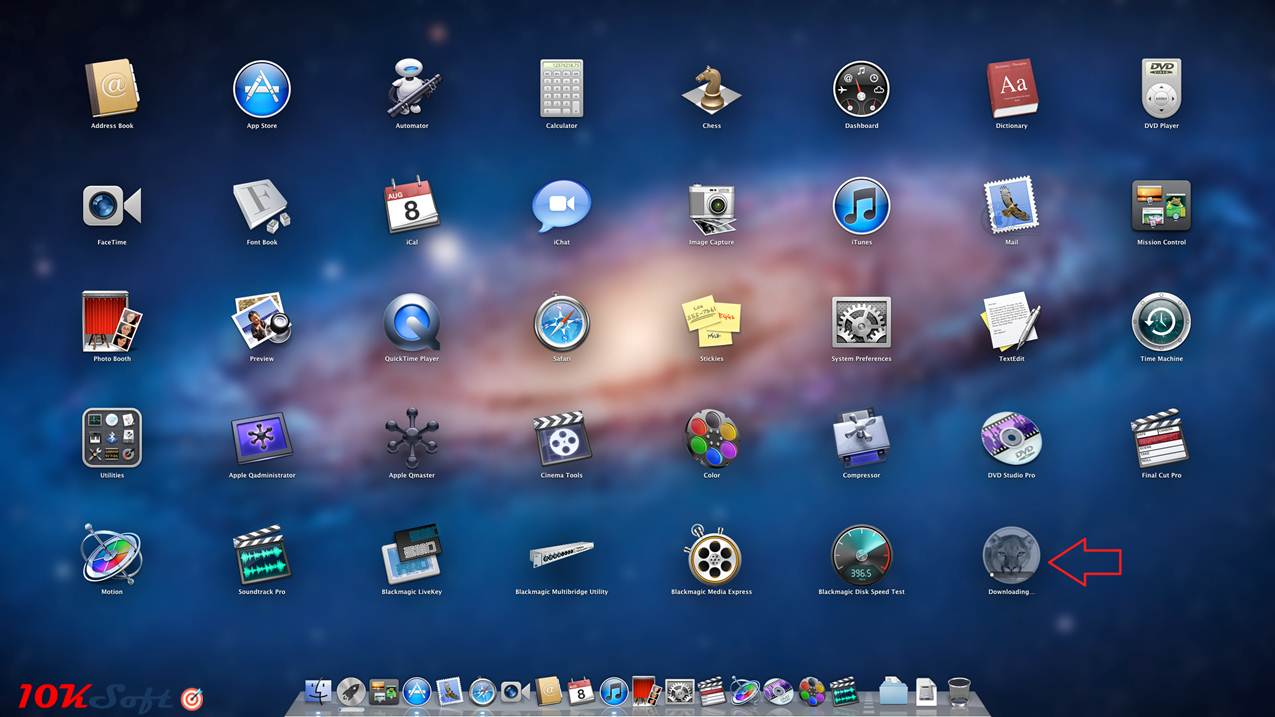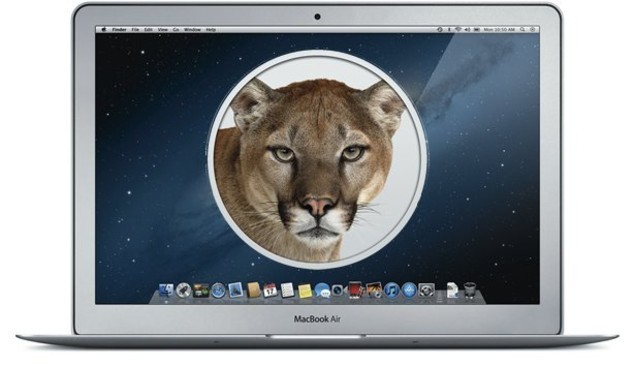In theory, you should have to install Mountain Lion only once, or never if your Mac came with Mountain Lion preinstalled. And in a perfect world, that would be the case. But you might find occasions when you have to install/reinstall it, such as

If you get a Mac that didn’t come with OS X Mountain Lion preinstalled
If you have a catastrophic hard-drive crash that requires you to initialize (format) or replace your boot drive
If you buy an external hard drive and want it to be capable of being your Mac’s startup disk (that is, a bootable disk)
If you replace your internal hard drive with a larger, faster, or solid state drive
If any essential OS X files become damaged or corrupted, or are deleted or renamed

Apple Store Os X Mountain Lion Download
The following instructions do double duty: They’re what you do to install OS X for the first time on a Mac, and they’re also what you do if something really bad happens to the copy of OS X that you boot your Mac from. The instructions offered here describe both the process for installing and the process for reinstalling OS X.
Os X Mountain Lion 10.8 Download
Here’s how to install (or reinstall) OS X, step by step:

Boot from your Recovery HD partition by restarting your Mac while holding down the cmd+R keys.
The OS X Utilities window appears. Select Reinstall OS X, and click Continue. The OS X Mountain Lion splash screen appears. Click Continue.
A sheet appears informing you that your computer’s eligibility needs to be verified by Apple. Click Continue to begin the process of installing or reinstalling OS X.
If you’re not connected to the Internet, you’ll be asked to choose a Wi-Fi network from the AirPort menu in the top-right corner.
The Mountain Lion software license agreement screen appears. Read it and click Agree.
A sheet drops down, asking whether you agree to the terms of the license agreement. Yes, you did just click Agree; this time you’re being asked to confirm that you indeed clicked the Agree button.
If you don’t click Agree you can’t go any farther, so I advise you to click Agree now.
Choose the disk on which you want to reinstall OS X by clicking its icon once in the pane where you select a disk.
If only one suitable disk is available you won’t have to choose; it will be selected for you automatically.
Click the Install button.
A sheet asks for your Apple ID and password. Type them in the appropriate fields; click Sign In, and your Mountain Lion installation (or reinstallation) begins.
The operating system takes 30 to 60 minutes to install, so now might be a good time to take a coffee break. When the install is finished, your Mac restarts itself. If you were reinstalling OS X on a hard disk that it had been installed on previously, you’re done.
Your Mac will reboot and you can begin using your new, freshly installed (and ideally trouble-free) copy of OS X Mountain Lion.
If you’re installing Mountain Lion on a hard disk for the first time, however, you still have one last step to complete. After your Mac reboots, the Setup Assistant window appears. You need to work your way through the Setup Assistant’s screens.
Download Mountain Lion for Mac. OS X 10.8 Mountain Lion is Apple's latest operating system for Mac. It brings OS X much closer to iOS in terms of features and syncing with iPads and iPhones. We've already given you a lowdown on the most important changes in Mountain Lion most of which are features taken from iOS.
Is your Mac up to date with the latest version of the Mac operating system? Is it using the version required by some product that you want to use with your Mac? Which versions are earlier (older) or later (newer, more recent)? To find out, learn which version is installed now.
If you get a Mac that didn’t come with OS X Mountain Lion preinstalled. If you have a catastrophic hard-drive crash that requires you to initialize (format) or replace your boot drive. If you buy an external hard drive and want it to be capable of being your Mac’s startup disk (that is, a bootable disk). Apple iMac 21.5in 2.7GHz Core i5 (ME086LL/A) All In One Desktop, 8GB Memory, 1TB Hard Drive, Mac OS X Mountain Lion (Renewed) Visit the Amazon Renewed Store 4.3 out of 5 stars 1,159 ratings. Download Mountain Lion for Mac. OS X 10.8 Mountain Lion is Apple's latest operating system for Mac. It brings OS X much closer to iOS in terms of features and syncing with iPads and iPhones. We've already given you a lowdown on the most important changes in Mountain Lion most of which are features taken from iOS.

Apple Os X Mountain Lion Release Date
If your macOS isn't up to date, you may be able to update to a later version.
Which macOS version is installed?
From the Apple menu in the corner of your screen, choose About This Mac. You should see the macOS name, such as macOS Mojave, followed by its version number. If you need to know the build number as well, click the version number to see it.
Which macOS version is the latest?
These are all Mac operating systems, starting with the most recent. When a major new macOS is released, it gets a new name, such as macOS Big Sur. As updates that change the macOS version number become available, this article is updated to show the latest version of that macOS.

If your Mac is using an earlier version of any Mac operating system, you should install the latest Apple software updates, which can include important security updates and updates for the apps that are installed by macOS, such as Safari, Books, Messages, Mail, Music, Calendar, and Photos.
Apple Os X Mountain Lion Iso Download
| macOS | Latest version |
|---|---|
| macOS Big Sur | 11.1 |
| macOS Catalina | 10.15.7 |
| macOS Mojave | 10.14.6 |
| macOS High Sierra | 10.13.6 |
| macOS Sierra | 10.12.6 |
| OS X El Capitan | 10.11.6 |
| OS X Yosemite | 10.10.5 |
| OS X Mavericks | 10.9.5 |
| OS X Mountain Lion | 10.8.5 |
| OS X Lion | 10.7.5 |
| Mac OS X Snow Leopard | 10.6.8 |
| Mac OS X Leopard | 10.5.8 |
| Mac OS X Tiger | 10.4.11 |
| Mac OS X Panther | 10.3.9 |
| Mac OS X Jaguar | 10.2.8 |
| Mac OS X Puma | 10.1.5 |
| Mac OS X Cheetah | 10.0.4 |
